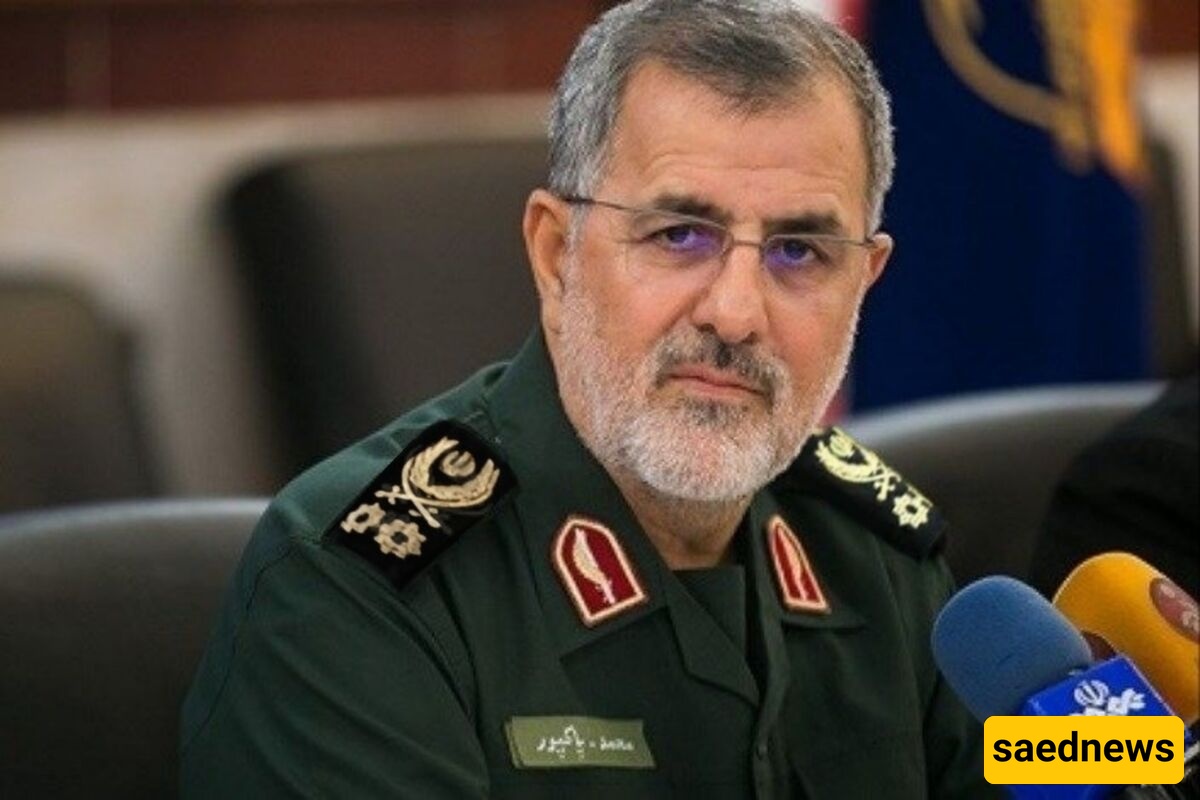SAEDNEWS: In a stark and unflinching address, Major General Mohammad Pakpour, commander of Iran’s Revolutionary Guard, warned that any renewed act of aggression against Iranian sovereignty would provoke a far more punishing and historic reprisal.

According to Saed News, Major General Mohammad Pakpour, the commander-in-chief of Iran’s Islamic Revolutionary Guard Corps (IRGC), has delivered a strident warning to the United States in the aftermath of the recent Iranian missile strike on Al-Udeid Air Base in Qatar — an operation Tehran claims was a direct retaliation for the U.S. assault on its nuclear infrastructure.
In a formal statement issued on Tuesday, General Pakpour declared that if Washington or its allies once again violate the territorial sanctity of the Islamic Republic, they will face retaliatory blows of an even greater magnitude — responses that, in his words, “will echo through history as a lesson to aggressors.”
Framing the missile assault on Al-Udeid — the strategic nerve centre of U.S. operations in West Asia — as a precision response to “criminal American aggression” and “complicity with the Zionist regime,” Pakpour said the operation delivered tangible damage to a heavily fortified site previously deemed impenetrable. He portrayed it as both a tactical success and a symbolic demonstration of Iran’s willingness to respond to military pressure with calibrated and forceful retaliation.
The tone of the statement, laced with religious and ideological gravitas, blended strategic calculation with rhetorical flourish. Quoting Quranic scripture and invoking the memory of fallen Iranian commanders, Pakpour characterised the confrontation as part of a broader historical struggle — one in which Iran, under divine guidance, would not merely survive but “stand tall and victorious.”
The most striking language was reserved for U.S. President Donald Trump, whom Pakpour dismissed as “reckless” and “foolish,” accusing him of sacrificing American national interest at the altar of Israeli security. “He has gambled with the lives and dignity of the American people,” the statement read, “to prolong the twilight of an apartheid regime.”
This escalation in rhetoric comes amid a dangerous and unpredictable phase in Middle Eastern geopolitics. The IRGC’s direct targeting of a U.S. base marks a significant departure from Tehran’s prior strategic posture — one that traditionally relied on asymmetric warfare and deniability. By claiming direct responsibility, the IRGC appears to be reshaping the rules of engagement in the region, issuing a new doctrine of overt deterrence.
Iran’s leadership, buoyed by a wave of domestic solidarity and regional sympathy, now signals that its threshold for absorbing attacks has changed. The message from General Pakpour is unambiguous: any repetition of what Tehran sees as an affront to its sovereignty will no longer be met with measured restraint, but with overwhelming and uncompromising force.

